Applying for scholarships can feel like navigating a maze. You’re putting your best foot forward, showcasing your achievements, and hoping to stand out from a sea of other applicants. But even the most qualified students can stumble due to easily avoidable mistakes. Don’t let careless errors be the reason your application lands in the “no” pile.
The truth? Winning scholarships isn’t just about stellar grades and impressive extracurriculars. It’s also about presenting yourself in the best possible light. This article is your guide to dodging the most common pitfalls in the scholarship application process. We’ll explore fifteen key mistakes to avoid, ensuring your hard work translates into financial aid for your education.
15 Scholarship Application Mistakes to Avoid Now
Missing Deadlines: The Cardinal Sin
Picture this: you’ve poured hours into crafting a perfect scholarship application, only to realize you’re a day late. Ouch. Missing deadlines is perhaps the most common and easily avoidable mistake. Scholarship providers set deadlines for a reason. It allows them to fairly assess all applications.
Why it matters: A late application is almost always an automatic rejection. No matter how impressive your qualifications.
The fix:
- Create a master calendar: Use a physical planner, a digital calendar, or a spreadsheet to track all deadlines. Include application opening dates as well, to give you ample preparation time.
- Set reminders: Use calendar alerts, phone reminders, or even sticky notes to keep deadlines top of mind. Set reminders well in advance (e.g., two weeks, one week, and one day before) to avoid last-minute rushes.
- Double-check everything: Before submitting, confirm you haven’t misread or misinterpreted the deadline.
- Prioritize: If you are working on several applications, start with those that have the closest deadlines first.
Ignoring Eligibility Requirements: A Waste of Time
Applying for scholarships is time-consuming. You don’t want to waste effort on opportunities you don’t even qualify for.
Why it matters: Scholarship providers have specific criteria for applicants. This can include GPA, major, state of residence, or financial need. If you don’t meet these requirements, your application will be disqualified.
The fix:
- Read the fine print: Carefully review all eligibility requirements before starting an application. This includes GPA minimums, residency restrictions, major requirements, and any other specific criteria.
- Don’t make assumptions: Even if a scholarship seems like a good fit, always confirm you meet the stated requirements.
- Use filters: When searching for scholarships online, use filters to narrow down opportunities based on your qualifications.
Writing Generic Essays: The Snooze Button
Scholarship committees read hundreds, even thousands, of essays. A generic, cookie-cutter essay won’t grab their attention.
Why it matters: Your essay is your chance to showcase your personality, your aspirations, and what makes you unique. A generic essay fails to do that.
The fix:
- Understand the prompt: Analyze the essay prompt carefully. What is the scholarship provider trying to learn about you?
- Tell a story: Essays that tell a compelling story are often more memorable. Use anecdotes and specific examples to illustrate your points.
- Be authentic: Write in your own voice. Don’t try to be someone you’re not.
- Tailor your essay: Customize your essay to each specific scholarship. Highlight the aspects of your experience and goals that align with the scholarship’s mission.
- Show, don’t tell: Instead of simply stating that you are hardworking, illustrate it with a story about a time you overcame a challenge through hard work.
Lack of Specificity: Empty Promises
Vague statements and generalities don’t impress scholarship committees. They want to see concrete evidence of your achievements and potential.
Why it matters: Specificity demonstrates that you are thoughtful, detail-oriented, and have a clear vision for your future.
The fix:
- Use data and numbers: Back up your claims with quantifiable results. For example, instead of saying you “improved the school’s debate program,” say you “increased the debate team’s membership by 30% and led the team to win two regional competitions.”
- Provide examples: Illustrate your skills and qualities with specific examples from your experiences.
- Be precise: Avoid vague language. Use concrete terms and details to describe your accomplishments and goals.
Poor Grammar and Typos: The Red Flag
Typos, grammatical errors, and sloppy writing are a major turnoff for scholarship committees. It reflects poorly on your attention to detail and commitment to excellence.
Why it matters: Scholarship applications are competitive. Even minor errors can give the impression that you are not serious or detail-oriented.
The fix:
- Proofread meticulously: Read your application carefully, line by line, looking for errors.
- Use grammar and spell checkers: These tools can catch many common errors, but don’t rely on them exclusively.
- Ask for help: Have a trusted friend, teacher, or family member review your application for errors. A fresh pair of eyes can catch mistakes you might have missed.
- Read aloud: Reading your application aloud can help you identify awkward phrasing and grammatical errors.
Not Following Instructions: Disregarding the Rules
Scholarship providers have specific instructions for a reason. Failing to follow them demonstrates a lack of attention to detail and respect for their process.
Why it matters: Scholarship committees want to see that you can follow directions and adhere to rules.
The fix:
- Read instructions carefully: Before starting an application, read all instructions thoroughly. Make sure you understand what is required.
- Pay attention to formatting: Follow all formatting guidelines, including font size, margins, and spacing.
- Submit all required materials: Ensure you include all required documents, such as transcripts, letters of recommendation, and essays.
Neglecting Letters of Recommendation: Missed Opportunity
Strong letters of recommendation can significantly boost your scholarship application. Neglecting this aspect can hurt your chances.
Why it matters: Letters of recommendation provide an objective perspective on your skills, qualities, and potential.
The fix:
- Choose recommenders wisely: Select teachers, mentors, or supervisors who know you well and can speak positively about your abilities and character.
- Give recommenders ample time: Ask for recommendations well in advance of the deadline. Provide recommenders with all necessary information, such as your resume, transcript, and a list of your accomplishments.
- Provide guidance: Offer recommenders some guidance on what to highlight in their letters. For example, you might suggest they focus on specific skills or qualities that align with the scholarship’s mission.
- Thank your recommenders: Show your appreciation by sending thank-you notes to your recommenders.
Overlooking Community Involvement: Demonstrating Impact
Scholarship providers often look for students who are actively involved in their communities and demonstrate a commitment to making a difference.
Why it matters: Community involvement showcases your character, leadership skills, and willingness to contribute to something bigger than yourself.
The fix:
- Get involved: Participate in volunteer activities, clubs, organizations, or other community initiatives.
- Document your experiences: Keep track of your volunteer hours, accomplishments, and the impact you’ve made.
- Highlight your contributions: Showcase your community involvement in your application, emphasizing the skills you’ve developed and the positive changes you’ve helped create.
Focusing Only on Financial Need: Selling Yourself Short
While financial need is a legitimate factor, it shouldn’t be the sole focus of your scholarship application.
Why it matters: Scholarship providers are also looking for students with strong academic records, leadership potential, and a clear vision for their future.
The fix:
- Showcase your strengths: Highlight your academic achievements, extracurricular activities, skills, and qualities.
- Express your goals: Articulate your aspirations and explain how the scholarship will help you achieve them.
- Demonstrate your potential: Convince the scholarship committee that you are a worthy investment and will make a positive contribution to society.
Exaggerating Achievements: A Risky Gamble
It might be tempting to embellish your accomplishments to impress the scholarship committee, but dishonesty can backfire.
Why it matters: Dishonesty can damage your credibility and lead to rejection. Scholarship committees may verify the information you provide.
The fix:
- Be honest and truthful: Accurately represent your achievements, skills, and experiences.
- Focus on your strengths: Highlight your accomplishments without resorting to exaggeration or fabrication.
- Be authentic: Let your genuine personality and passion shine through in your application.
Using Inappropriate Language: A Lack of Professionalism
Scholarship applications are formal documents that require professional language and tone. Using slang, jargon, or informal language can create a negative impression.
Why it matters: Inappropriate language can suggest a lack of maturity, professionalism, and respect for the scholarship committee.
The fix:
- Use formal language: Write in a clear, concise, and professional style.
- Avoid slang and jargon: Use language that is appropriate for a formal setting.
- Proofread carefully: Pay attention to your tone and word choice.
Not Addressing the Essay Prompt: Missing the Mark
It sounds basic, but many students fail to directly answer the essay prompt. This can make your essay irrelevant and decrease your chances of winning.
Why it matters: If you don’t answer the prompt, it shows you didn’t understand the assignment or didn’t take the time to craft a relevant answer.
The fix:
- Analyze the prompt: Before writing, carefully read and understand what the prompt is asking you to do.
- Outline your response: Create an outline that directly addresses the prompt.
- Stay focused: Ensure that your essay stays on topic and directly relates to the prompt.
Submitting Incomplete Applications: Showing a Lack of Effort
A complete application includes all required materials, filled out correctly and thoroughly. Submitting an incomplete application sends the message that you are disorganized or don’t care enough to put in the full effort.
Why it matters: Incomplete applications are often automatically disqualified.
The fix:
- Double-check everything: Before submitting, carefully review your application to ensure that you have completed all sections and included all required documents.
- Use a checklist: Create a checklist to keep track of all the required materials and ensure you have submitted everything.
Neglecting to Proofread the Entire Application: A Final Check
Proofreading isn’t just for the essay; it’s for the entire application. Neglecting to proofread every section can result in mistakes that undermine your overall presentation.
Why it matters: Errors in any part of your application can negatively impact the scholarship committee’s perception of you.
The fix:
- Review every section: Before submitting, review every section of your application for errors, including grammar, spelling, and formatting.
- Have someone else review it: Ask a trusted friend, teacher, or family member to proofread your application for you.
Failing to Express Gratitude: A Missed Opportunity to Connect
While it may seem small, expressing gratitude can make a positive impression on the scholarship committee.
Why it matters: A thank-you note conveys sincerity and shows that you appreciate their consideration.
The fix:
- Write a thank-you note: After submitting your application, send a brief thank-you note to the scholarship provider.
- Express your appreciation: Thank them for their time and consideration, and reiterate your enthusiasm for the opportunity.
Take Control of Your Scholarship Destiny
Avoiding these common scholarship application mistakes can significantly increase your chances of success. By paying attention to detail, crafting compelling essays, and presenting yourself in the best possible light, you’ll be well on your way to securing the financial aid you need to achieve your educational goals. It takes focus and hard work, but the opportunity to alleviate the financial burdens of higher education is worth the effort.

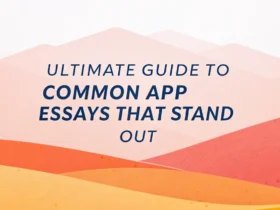
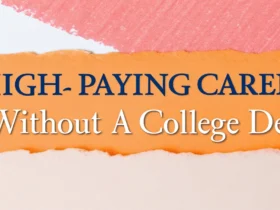


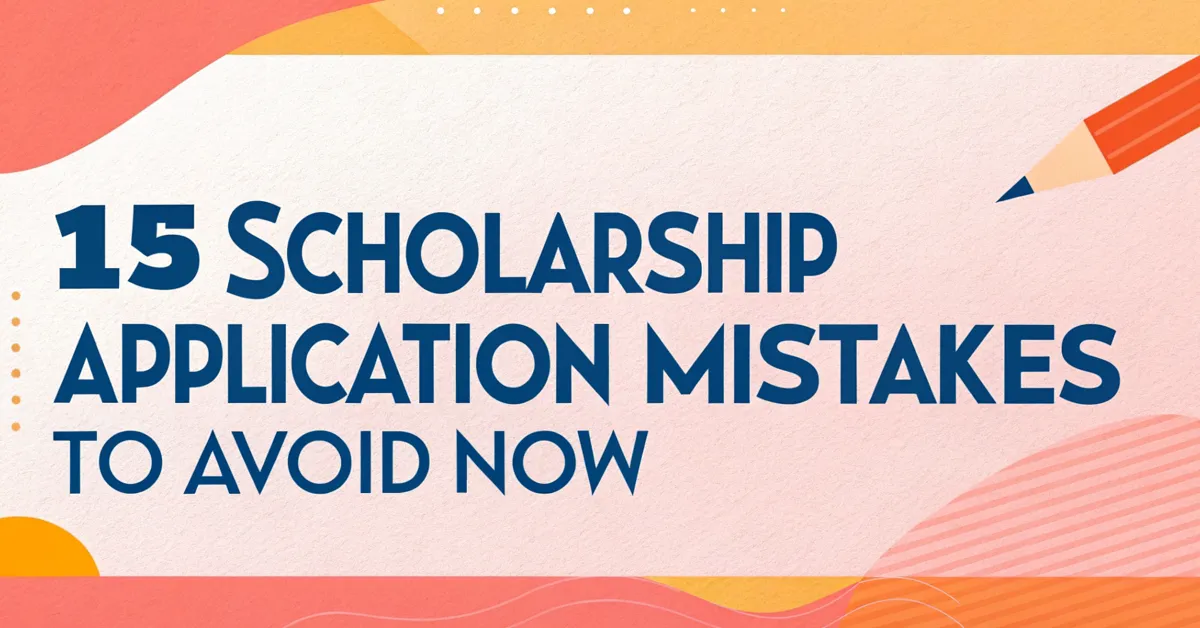
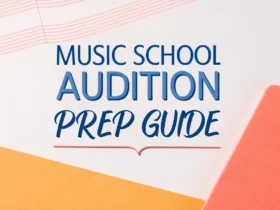






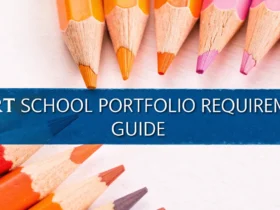
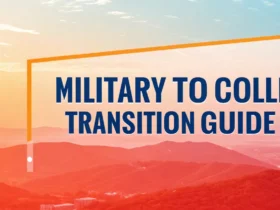
Leave a Reply
View Comments